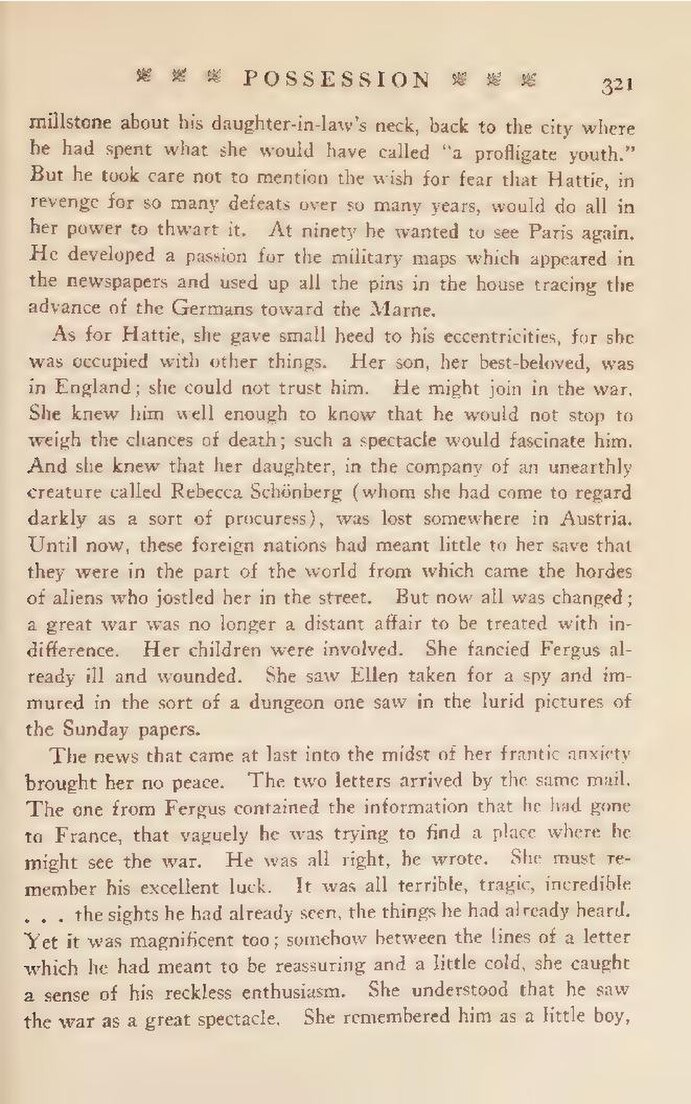millstone about his daughter-in-law's neck, back to the city where he had spent what she would have called "a profligate youth." But he took care not to mention the wish for fear that Hattie, in revenge for so many defeats over so many years, would do all in her power to thwart it. At ninety he wanted to see Paris again. He developed a passion for the military maps which appeared in the newspapers and used up all the pins in the house tracing the advance of the Germans toward the Marne.
As for Hattie, she gave small heed to his eccentricities, for she was occupied with other things. Her son, her best-beloved, was in England; she could not trust him. He might join in the war. She knew him well enough to know that he would not stop to weigh the chances of death; such a spectacle would fascinate him. And she knew that her daughter, in the company of an unearthly creature called Rebecca Schönberg (whom she had come to regard darkly as a sort of procuress), was lost somewhere in Austria. Until now, these foreign nations had meant little to her save that they were in the part of the world from which came the hordes of aliens who jostled her in the street. But now all was changed; a great war was no longer a distant affair to be treated with indifference. Her children were involved. She fancied Fergus already ill and wounded. She saw Ellen taken for a spy and immured in the sort of a dungeon one saw in the lurid pictures of the Sunday papers.
The news that came at last into the midst of her frantic anxiety brought her no peace. The two letters arrived by the same mail. The one from Fergus contained the information that he had gone to France, that vaguely he was trying to find a place where he might see the war. He was all right, he wrote. She must remember his excellent luck. It was all terrible, tragic, incredible . . . the sights he had already seen, the things he had already heard. Yet it was magnificent too; somehow between the lines of a letter which he had meant to be reassuring and a little cold, she caught a sense of his reckless enthusiasm. She understood that he saw the war as a great spectacle. She remembered him as a little boy,
